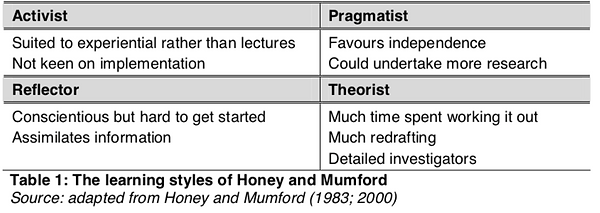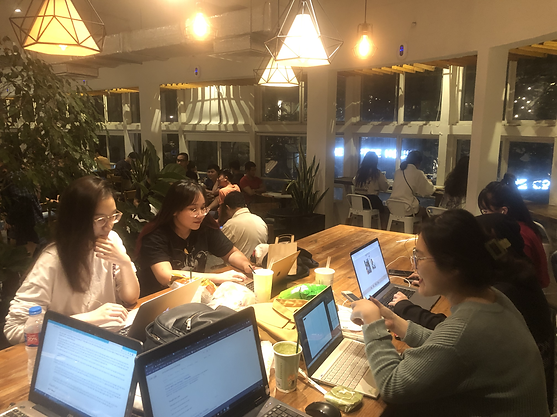What have I learned from the past 7 weeks
Half-course Reflection
ICP is a tough but interesting course that educates me not only about theories but also gives me hands-on real experience practice on developing strong communication skills.
From the first week, we learned about ourselves and our working styles, divided roles in the team, and researched about our clients. Following weeks we learned about project management, such as how to solve conflicts and communicate well with others, which our team is still trying to improve in every meeting. Also, learn to set up our goals and objectives for the team, time management, and scheduling, types of insights and how to reach our target audience, communication strategies along with creating our communication campaign.
I was very exhilarated and nervous at the same time. I doubted myself and my skills when it came to dividing the team roles because I never excel or did poorly on any of my skills, so I didn't know what role would suit me in this project. I was worried if I couldn't trust myself, how can others trust me? These doubts came from the fact that I did not know my straghth and weaknesses and on top of that, I didn't know the straights and weaknesses of my teammates. That is why I especially enjoyed the first few weeks of studying ICP where I learned and discovered abilities and capabilities of myself and my teammates that I didn't know before by a variety of online tests and questions.
For example, my online test result showed that I am a visual person (Proprofs 2020). In my opinion, it was accurate. I found out that I brought more benefits to my team on the creative side rather than the research side. My ability to visualize ideas and execute them allowed me to provide my team with many interesting ideas that made the final cut. Besides, the fact that clients liked my ideas, was a second proof that I found the right role in my team.
From my previous goals, I wanted to improve my social visibility on the internet. To achieve my goals I started to post more regularly and invest more time in the design and content of my post. I post about things that inspire me or stuff that I am interested in. My social visibility has not improved much but I am still trying to work on that aspect and build a good online reputation.

Image: A weekly group meeting of team Beezy, taken by Nguyen Hoang.
Collection of Images: A weekly group meeting of team Beezy.
When we collapse
The bigger issue came after we received the brief and started working on our communication campaign for RMIT graduation day. After 3 weeks of our teammates' meetings, I realized that our team is not very productive and effective during the meetings. As it says in our reports we have had group meets more than 16 times but every time, the work progression only progressed for 5% or 10% per meeting. We discussed for hours, someday 10 hours, and by the end of the meeting, we were all exhausted and could not finalize anything. At the next meeting, we were right where we left off from the previous meet. In my opinion, we did not set very clear expectations of what needs to be done before we finish. We do write the objectives we need to do by the end of meetings but we never even came close to achieve them.
Collection of Images: A weekly group meeting of team Beezy.
Secondly, I feel we met so much and we wasted a great deal of time and the improvements were slow and barely visible. Luckily, my whole team consists of talented, motivated, and hard-working people, however, we could not delivers and reach the desirable results I wanted, which made me sad and frustrated because I didn't know, what exactly causes these issues and where I or we should start fixing it and improve our team efficiency by at least 50% or 60%.
Video was made and shot by Thao My: A weekly group meetings of team Beezy.
How it affect me and the team?
Firstly, the team ineffectiveness - we put a lot of effort and time, forgetting eating, sleeping and individual assignments to do the group work, and now I just feel it didn't worth it because we couldn't reach our true good quality work potential.
According to Honey and Mumford’s learning style model (1968)There are 4 different styles of learning: Activist, Reflector, Theorist, and Pragmatist.
According to Rong Huang and Graham Busby (2010)

We have all 4 styles of learning in our team, which might be the cause of the slow progress as differences in background knowledge, interests, and abilities affect how individuals consume and understand the information. Reflecting on our team we have not clearly understood others' learning styles and how to balance our learning styles to better match each other's styles, which results in a slow progression of the team. (Riener & Willingham 2010) Reflector (Thi, My) needs time to prepare and evaluate things carefully before making final decisions. The theorist ( Tran ) spent time on each little detail. Pragmatists (QA) favors independence and Activists (Ngoc) suited to experience rather than lectures.
In other words, the team's inefficiency, not clearly understanding each other's learning styles and poor time management affected our teamwork quality, time and energy that could have been spent in better ways, and decreased in physical health.
Image: A weekly group meeting of team Beezy.
My next step
In order to improve my teamwork productivity and time management the following steps will be taken:
-
Establish team rules (Gleeson 2020), Time management. According to Robertson and Francis‐Smythe(2011) on improving time management, at each meeting I should ‘Expected’ - estimate how long a certain task would take; ‘Retrospective’ - how long it took to execute the previous task that was taken; and ‘Prospective’ - how long a task is taking while in process (Francis‐Smythe, Robertson 2011) This would give us a real evaluation of our work and where we spent our time the most and is that task worth that much time and effort.
-
Increase the communication between team members by using the study and learning cents model 2017(week 2). Try to understand each other's styles and whether they are facing any difficulties along the way.


-
Learn our priorities, health, and individual assignments. Find a balance between work and life. Make my detailed schedule and timing for each task I need to do throughout the day, and make sure to take breaks and eat healthier to be more productive. (Martinez, Ordu, Della & McFarlane 2013).
-
As a dyslexic person, I need more time to write or read than everybody else, so I will read more and check my spelling more carefully to showcase myself as more professional in the future.
Source: Noron 2020
How can it be applied in your professional practice?
First of all, learn how to improve teamwork efficiency and be able to find the problem that causing the inefficiency is a skill that would help me to be a better team worker in the future and deliver a better work quality without wasting time.
Second of all, being able to balance life, work & study is a crucial skill in all fields and can come to good use when we graduate and have to find balance in our everyday life.

Image: A weekly group meeting of team Beezy.













